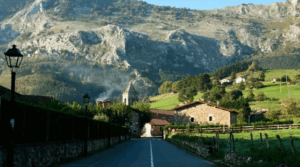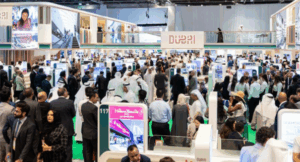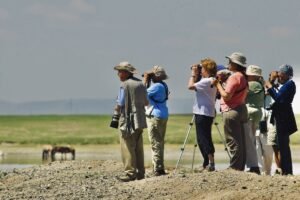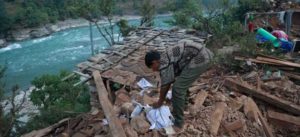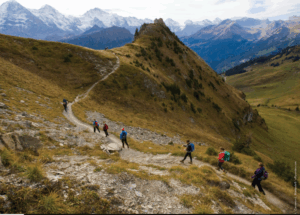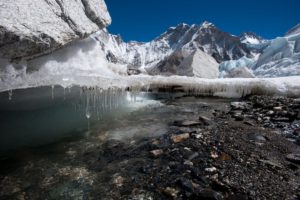‘Tourism industry in ‘wait and see’ position’
By Ballav Dahal———-
Nepal’s slowly growing tourism industry might face yet another setback in the days ahead as the country’s political transition has been prolonged following the expiry of the Constitution Assembly (CA) term on May 27 without drafting a new constitution.
Announcing another CA election for November 22, Prime Minister Dr. Baburam Bhattarai said that the government was ‘forced’ to go for the polls since the major political parties failed to reach an understanding regarding the promulgation of the constitution.
A series of recent strikes organised by various political and ethnic groups have adversely affected the country’s tourism industry this season. A large number of international tourists have cancelled their plans to visit Nepal due to such a political uncertainty.
Travel trade entrepreneurs say that they now are in a ‘wait and see’ position. One of their main concerns is that the country might see disturbances like street protests, general strikes and bandhs. As tourism is a very sensitive sector, such activities will hit the industry hard.
“Despite the prolonged political transition, our tourism business will not suffer much if the political parties do not resort to strikes and violent street protests,” Basant Raj Mishra, Immediate Past President of the Nepal Association of Tour Operators (NATO), said.
A senior tour operator, Mishra said that one of the strengths in Nepal is that all the political parties have fully understood the importance of the tourism industry.But the tourism sector’s situation will depend upon the travel advisories to be issued by the foreign diplomatic missions based in Nepal, he said.
“If the political disturbances keep going on in the country, the foreign missions will naturally issue harsh travel advisories. Then, the tourism sector will reel under a difficult condition,” he said.
As a tourist destination, Nepal had suffered much from the continuous political unrest during the decade-long insurgency in the past when the number of travelers visiting the country had gone down considerably. A lot of international tour operators selling Nepal had excluded the country from their list of destinations because of negative media coverage abroad. And it took several years for the country to have its destination image restored.He stressed the need for holding a joint meeting between tourism-related associations and the political parties in order to settle the problems.He, however, said that the country’s tourism will stand to pass through an adverse situation if the political leadership does not avert possible ethnic strife.
He suggested that the public and private sector should take both immediate and long-term measures to safeguard and promote the country’s tourism industry.”We must develop the Nepal Tourism Board (NTB) into a professional body without giving it a political colour,” he said.
Although the contribution of the Nepalese tourism sector to the gross domestic product (GDP) is not so high, this has become a vital tool to generate jobs and foreign currency. In addition, it has supported various sectors like agriculture, handicraft, dairy, and livestock and poultry farming.
Pabitra Kumar Karki, president of the Nepal Association of Tour & Travel Agents (NATTA), said that the country’s new political development could lead the tourism industry to a difficult phase.Karki said that the entire economic sector had expected political stability with a new constitution.
He suggested that the political parties should reiterate their commitments that they would not carry out the activities that are detrimental to the tourism sector.


